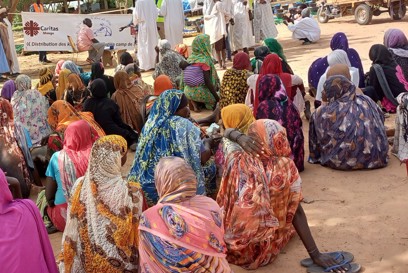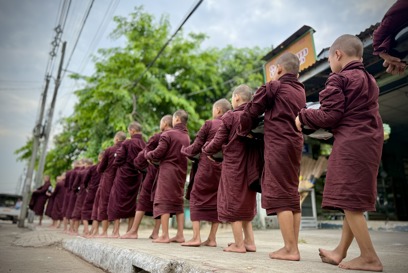Instituted in 1979, World Food Day promotes global awareness and action for those who suffer from hunger, and to highlight the need to ensure healthy diets for all. This year it focuses on “Right to foods for a better life and a better future,” emphasising the necessity of a diversity of nutritious foods for a healthy diet.
It calls attention to the disproportionate impact of climate change on the poor, conflict as a driver of hunger, and the greater vulnerability of women to food insecurity.
One of the world’s greatest hunger crises exists in the Horn of Africa, where 18 million people face severe hunger. In 2023, the 23.2m displaced people in the region comprised 19 per cent of all displaced people worldwide. On average, those dependent on aid received 30-60 per cent of the full food ration, owing to a lack of funding.
Compounding the displacement of people is the worst drought the region has seen in 40 years. Conservative estimates say climate change driven by human activity has made this drought 100 times more likely.
Bute is a village elder in a community in Ethiopia affected by drought. Bute and his wife Burre previously had 2,000 livestock in two stables, including donkeys, goats, and cows. The grass was green and there was plenty of pasture for their livestock. They used to harvest sorghum and maize, with enough water from the nearby river to irrigate their crops.
During the last three years, rainfall in this area of southern Ethiopia has been erratic, with long periods without any rain. This meant that farmers and pastoralists are unable to grow any crops or feed their livestock. Bute and Burre’s seven adult children have left in search of food, and it has been more than a year since they last saw them.
“We used to have lots of milk and meat to eat, and now we have almost nothing. We feel very sad and frustrated. The life we used to live and enjoy is completely gone,” Bute said.
Caritas Australia supports programs in Ethiopia, Kenya, Somalia, Sudan, South Sudan, and Eritrea.
Programs supported by the appeal provide:
· Food distributions to households at risk of malnutrition
· Support to children impacted by malnutrition
· Clean drinking water and support for sanitation
· Multipurpose cash assistance for households at risk of poverty
· Hygiene supplies, including soap and hand sanitiser
· Seeds and household items for families impacted by conflict and displacement
· Environmentally sustainable and drought-resistant farming training and support
A beneficiary of programs supported by this appeal, Ayoyo, said "The drought has destroyed all of our crops and left us very hungry, we have nothing to eat. Before when I had my husband, he could support me, but now as a widow I don’t have any support. Without Caritas, my children might have died."
To support Caritas Australia’s African Food Crisis Appeal, visit www.caritas.org.au/africa or call 1800 024 413 toll free.

















